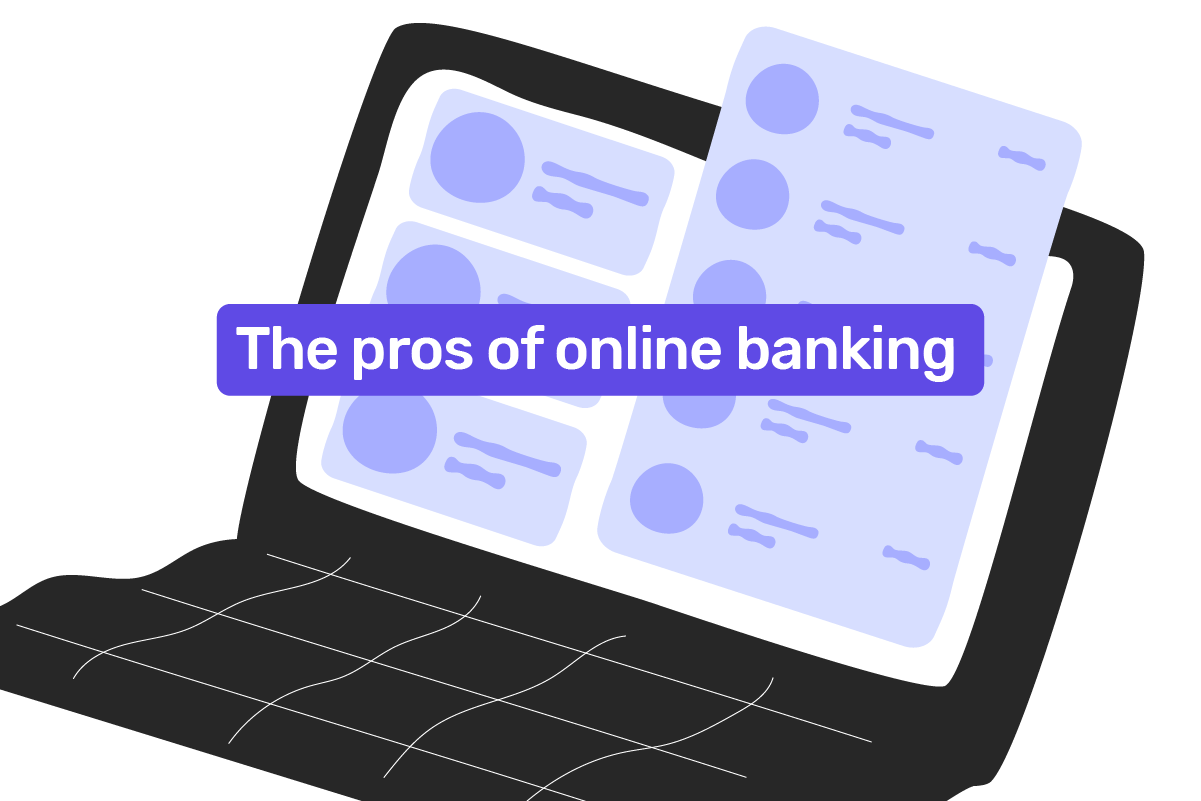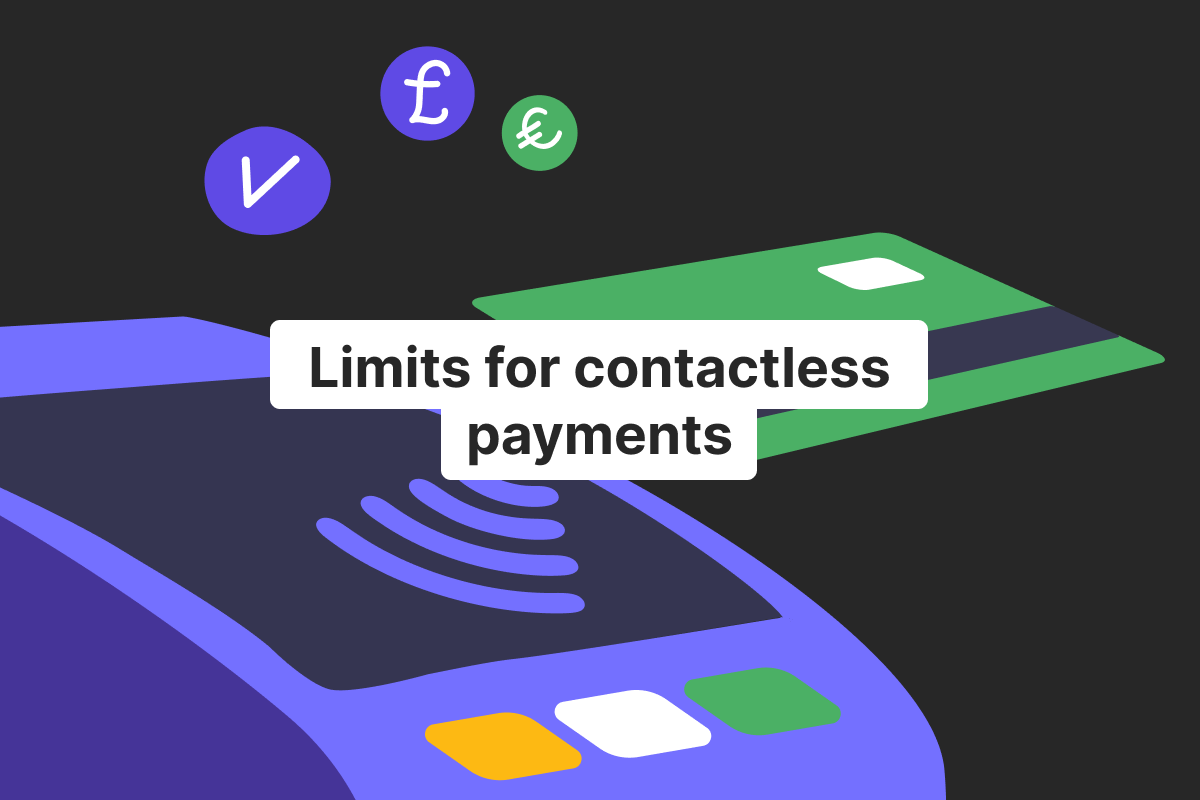In the world of rapid digitalization, the term “online banking” comes up a lot. And no wonder, as it is a relatively new, convenient way of managing your finances. But what is online banking exactly? How does online banking work, and most importantly, how can you use it to your utmost benefit?
Today, Genome’s team will be answering all these questions and more, so you can decide, whether it is for you or not.
How online banking works
Let’s first start with a definition of online banking. Online banking is a process when a customer or a company performs all their banking operations online – via the app or a web browser. Moreover, a financial institution that provides such services, usually operates completely online, without bank branches.
And what is digital banking then? Although you may think these two terms are synonyms, digital banking is considered a broader term. It encompasses all types of financial services and transactions carried out digitally. It occurs by the means of mobile banking, Fintechs that provide services like payment gateways, accountancy, etc. So, essentially, online banking is a part of digital banking.
Ok, back to online banking. At its core, the emergence of online banking was caused by the digitalization of many industries and fields that directly coincides with people’s daily lives.
Not only that, but online internet banking aims at making daily financial operations easier. As private users and companies can access any banking operations via their browsers or phones at any time of day. Thanks to that, the need for banking branches decreases, which means people don’t have to visit their bank to open an account, get credit cards, etc.
Open an account
in Genome online
Online banking vs. traditional banking
The debate on which of the two provides better services goes on. On one hand, traditional banks have been around for decades, centuries even, and established themselves as reputable and reliable institutions. On the other hand, the digital evolution of industries drives the demand for online banking services. The global lockdowns that took place in 2020 had a grand impact on the adoption of online banking as well. For instance, the pandemic resulted in a 72% surge in usage of Fintech and mobile banking apps among the European population in just a week.
So, what to choose: traditional banks or online internet banking? It is up to you to decide, as both have advantages and disadvantages.
As we have mentioned, online banking allows you to make all the basic financial operations like account opening, money transferring, getting bank cards online, and at any time of day – when you feel like it. Meanwhile, traditional banks still may require your presence at the branches to approve you for the account, issue you a credit card, etc.
Fintech companies that are the main online banking providers are more technologically advanced and offer faster services, easier integrations with merchant websites, and more online tools for smooth banking overall. Not to mention that customers usually pay fewer fees for using online internet banking services, as traditional banks require far more maintenance.
On the other hand, not all Fintechs can provide a service range as wide as brick-and-mortar banks. The latter usually have massive capitals behind them, and their assistance is more suitable for big corporations.
Also, if you don’t like dealing with modern devices and prefer face-to-face communication, traditional banks are more up your alley.
Pros and cons of online banking
Now let’s discuss the advantages and disadvantages of online banking to better understand what it is all about.
The benefits of online banking:
Accessibility and handiness. It is much easier to come around an online banking provider – all you need is an internet connection!
Compare the services of different institutions and pick the most beneficial terms! Setting up the online banking features is as easy. Visit Fintech’s website or download the app – forget about all the times you had to spend in lines at the banking branches.
Lower fees. Compared to their brick-and-mortar counterparts, online banking institutions require lower charges for setup and usage. It is for the most part because Fintech companies don’t pay for the branches’ maintenance and have fewer staff members.
Various bonuses. This and previous advantages are interconnected. You see, because Fintechs generally pay less for their maintenance, they offer clients more different bonuses. For instance, some have high-interest rates, others provide cashbacks for certain goods, etc.
Technological advancement. Fintechs are more technologically savvy, which allows transactions and other features to run smoother. Not only that, but running all your accounts and services from one place simplifies the process of managing your money.
But what about the negative side of online banking?
The disengaged experience. If you prefer that your financial institution walk you through every process, then online banking might not be for you. Not all Fintechs provide you with dedicated account managers, and your only way of communicating with a payment service provider may be only through the support team. Thus, you need to be more or less understanding of modern technologies to use online internet banking;
The range of services might be limited. Online banking providers don’t always have a full scope of features traditional banks provide, especially when it comes to loans and mortgages;
Getting cash isn’t easy. Credit and debit card issuing is more common for traditional banks, payment service providers don’t always have such an option. Even if they do, the fees for withdrawing cash may be higher than with brick-and-mortar banks;
How to set up online banking
The process is pretty simple. You first need to carry out a little research on different online banking options and pick the one that meets your needs. We advise you to compare them by:
Features they provide;
Fees;
Support team channels;
Transfer and other limits;
Anti-fraud tools;
Once you have chosen a Fintech company you find the most suitable, you will need to sign up to their website or download the app. From there, you will proceed with the account opening. Depending on which kind of an account you are starting, you are required to fill in personal information, as well as information about your company (if you start business/merchant accounts).
As an example, let’s see how easy it is to apply for a personal account online with a payment service provider like Genome!
Signup to our website using your email or phone number;
Choose a personal wallet type;
Provide short data about yourself: your full name, date of birth, address;
Pass a verification for security purposes. All you are required to do is take a picture of your ID and film a video selfie;
You are all set! Once you are approved, you can open up to 5 accounts in each of the following currencies: EUR, GBP, USD. The account opening occurs within minutes, from Genome’s dashboard.
The best part is that you can also start business accounts within Genome as well, just make sure you have internet access. The onboarding process requires that you provide information about your company in addition to your personal information listed above.
Open an account
in Genome online
How much does it cost?
Fintech companies and PSPs have different charges for setting up online internet banking services. Usually, an account opening costs less than with brick-and-mortar banks.
For instance, individuals can start a personal euro IBAN account within Genome for free! You can find the full pricing here.
How to use online banking
If you are wondering how to do online banking, the answer is simple: pretty much the same way you do with traditional banks. The main difference is that you do that via a web browser or an app.
Let’s see the contrast between getting a debit card from a traditional bank vs obtaining it from a Fintech. In the first scenario, you need to go to the banking branch, wait until it’s your turn to communicate with the manager, fill in the necessary documentation, and then go to the bank again within a few days to collect the card.
And during the second scenario, all it takes is for you to visit your online banking website whenever you want to and fill in the information to order the card. Your debit card will be delivered to your house/post office.
Speaking of, Genome’s virtual and physical Visa debit cards are now available for a pre-order!
How to send a payment
This is how it usually works with most Fintechs. Open your online banking app, go to the “transfers” tab. First, choose the account/card you want to send money from. Then, select the receiver from your list of contacts. If you don’t have the receiver in your contact list, fill in their name, IBAN, SWIFT code, and the amount you want to send.
Check out Genome’s article: “How to transfer money to someone else’s bank account?”.
Is online banking safe?
Unfortunately, online banking can be prone to fraud. The reason is that the person’s payment data can be leaked. That’s why, when choosing a payment service provider, make sure it has security and anti-fraud tools in place. One of the security factors is the availability of multi-factor authentication (2FA). It means that a user is required to verify their identity when logging into the online internet banking account not only by entering their password but with an OTP/biometrics.
Fintech companies also offer businesses and merchants safety tools to prevent chargebacks and protect their transactions from fraudsters. We recommend checking out this article to keep your data safe: “Mobile banking security tips”.
FAQ
What is meant by online banking?
The term refers to a situation when a person or a company only accesses the financial services via the internet and doesn’t need to visit banking branches. The institutions that provide such services operate completely online as well.
What is online banking with an example?
Here’s an example: a person wants to open an account to store money, transfer and exchange them, get salaries, etc. If for this purpose they choose a financial institution that offers services online and doesn’t have physical branches, they are using online banking.
For instance, Genome is an electronic money institution, using which you can start a personal and business wallet, open a business account, send international and domestic transfers completely via your web browser!
What are the types of online banking?
Online banking can be categorized by the way you access these services. For instance, some financial institutions allow you to use your accounts via both web browsers and mobile apps, others only provide the apps.
Genome lets you choose the most convenient way to run your accounts: use a browser or download our app via Apple Store or Google Play.
What are the advantages of online banking?
Quick access to your accounts and money at all times, lower fees, faster services, and high interest are some of the benefits of online banking. We have discussed these pros in more detail earlier in the article.






